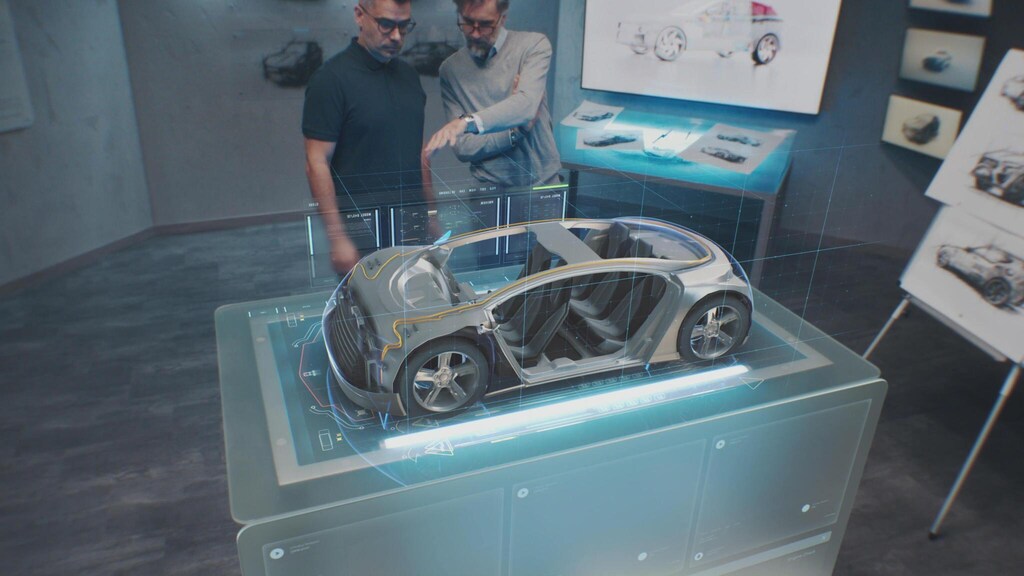In the dynamic realm of automotive technology, enthusiasts strive to elevate their vehicle’s performance. Powerstroke engines witness next-gen upgrades, pushing boundaries for enhanced power, efficiency, and durability.
In this article, we will explore the technological landscape of Powerstroke performance upgrades, highlighting key advancements and how they contribute to the evolution of diesel engine capabilities.
Controversial DEF Delete
The automotive realm has witnessed a polarizing debate surrounding the 6.7 Powerstroke DEF delete, a modification that involves removing the Diesel Exhaust Fluid (DEF) system. This contentious practice raises ethical dilemmas while promising potential fuel efficiency gains.
In this exploration, we delve into the motivations behind this modification and scrutinize the delicate balance between performance aspirations and environmental responsibilities.
Diving into the Contentious Realm
Enthusiasts seek the 6.7 Powerstroke DEF delete for improved performance and efficiency, viewing the DEF system as hindering optimal fuel economy. The financial burdens of DEF upkeep prompt consideration of elimination, as some argue its costs outweigh environmental gains.
Ethical debates arise as critics challenge modifications, citing concerns over compromised emissions standards and increased air pollution.
Legal Quandaries
Contemplating the 6.7 Powerstroke DEF delete brings complex legal considerations, with the removal impacting emissions compliance and risking legal consequences under varying environmental regulations.
Beyond emissions, potential warranty voidance adds financial risk, requiring scrutiny for informed decision-making in navigating the intricate legal landscape associated with the 6.7 Powerstroke DEF delete.
Performance vs. Ethics
The delicate balance of pursuing enhanced performance while navigating ethical considerations. Acknowledging the allure of heightened performance, it emphasizes the complex interplay between ethical and environmental responsibilities.
Enthusiasts are encouraged to conscientiously weigh potential consequences, fostering informed decisions aligned with their values in the realm of diesel engine customization.
Environmental Fallout
After thoroughly examining the environmental risks associated with DEF removal, this section focuses on the potential surge in nitrogen oxide (NOx) emissions.
We highlight the consequences for air quality and the broader ecological impact stemming from the controversial 6.7 Powerstroke DEF delete. Environmental considerations are paramount in the ongoing discourse surrounding this modification.
Informed Decision-Making
Emphasizing the significance of extensive research, this section underscores the importance of aligning modifications with legal and sustainability norms.
Enthusiasts are urged to undertake thorough research as a prerequisite for considering the DEF system elimination. Informed decision-making is positioned as a key element in fostering responsible automotive practices.
Safeguarding Powerstroke Integrity
Understanding the nuanced balance required to enhance diesel performance without compromising the integrity of the Powerstroke engine is the focal point of this section.
We explore responsible avenues for diesel performance upgrades that contribute to a cleaner and more sustainable automotive future. By promoting responsible practices, we aim to safeguard the integrity of the Powerstroke engine.
ECM Tuning Modules

Next-gen Powerstroke upgrades hinge on Electronic Control Modules (ECMs), pivotal for finely managing engine performance. These advanced modules open doors to customized tuning, revolutionizing diesel power by allowing users to tailor engines for specific applications and driving conditions.
- Electronic Control Modules (ECMs) are fundamental in next-gen Powerstroke upgrades, playing a crucial role in managing engine performance.
- ECMs control essential parameters such as fuel injection, turbocharger boost levels, and other critical aspects of the engine.
- Next-gen ECMs go beyond basic engine control, offering advanced tuning options with information solutions that allow users to optimize their Powerstroke engines for specific applications.
- Custom tuning has become a game-changer in diesel performance, enabling users to adjust fueling, timing, and other parameters.
- Tuning solutions are often accompanied by performance monitors, providing users with real-time data to make informed adjustments.
- These tuning advancements not only boost overall performance but also enable users to fine-tune Powerstroke engines for different driving conditions.
- The ability to balance power and fuel efficiency is a key benefit of sophisticated tuning options in next-gen ECMs for Powerstroke engines.
Turbocharger Technology
 In diesel engine evolution, turbocharging is a foundational element, and next-gen Powerstroke upgrades lead the charge in pushing turbocharger boundaries. Innovations in aerodynamics and materials offer a holistic approach, delivering enhanced acceleration, reliability, and fuel efficiency.
In diesel engine evolution, turbocharging is a foundational element, and next-gen Powerstroke upgrades lead the charge in pushing turbocharger boundaries. Innovations in aerodynamics and materials offer a holistic approach, delivering enhanced acceleration, reliability, and fuel efficiency.
- Turbocharging is a longstanding cornerstone of diesel engine performance, with next-gen Powerstroke upgrades pushing the boundaries of turbocharger technology.
- Advancements in aerodynamics, materials, and design contribute to the development of more efficient and responsive turbochargers.
- Variable geometry and twin-turbo setups are increasingly common, enhancing low-end response and delivering increased power across the entire RPM range.
- Electronic turbo actuators and variable nozzle turbines are emerging technologies in diesel performance, providing precise control over boost levels.
- These advanced, technology-powered enhancements optimize Powerstroke engine performance for exhilarating acceleration, reliability, and longevity.
- Next-gen turbocharger upgrades showcase a holistic approach to diesel engine enhancement, integrating design, materials, and electronic control for a well-rounded performance boost.
Fuel Injection Advancements
 Next-gen Powerstroke upgrades redefine diesel engine evolution with innovations like intelligent fuel mapping and nano-coated injector nozzles, delivering a seamless fusion of performance, efficiency, and environmental consciousness on every drive.
Next-gen Powerstroke upgrades redefine diesel engine evolution with innovations like intelligent fuel mapping and nano-coated injector nozzles, delivering a seamless fusion of performance, efficiency, and environmental consciousness on every drive.
- Intelligent Fuel Mapping: Next-generation Powerstroke engines incorporate advanced fuel mapping technology, allowing for dynamic adjustments based on driving conditions. This smart system optimizes fuel injection for various scenarios, ensuring an ideal balance between performance and fuel efficiency.
- Nano-coated Injector Nozzles: Cutting-edge injector nozzles are coated with nano-materials, enhancing surface properties to promote better fuel atomization. This nano-coating minimizes friction, improves durability, and contributes to a more efficient combustion process.
- Variable Injection Pressure: The latest Powerstroke upgrades introduce variable injection pressure technology, enabling the engine to adapt the fuel pressure based on demand. This results in improved responsiveness, reduced turbo lag and enhanced overall drivability.
- Adaptive Injector Timing Algorithms: Powerstroke advancements include sophisticated algorithms that continuously analyze engine parameters to optimize injector timing. This adaptability ensures precise fuel delivery, promoting smoother acceleration and improved throttle response across a wide range of driving conditions.
- Dual-Stage Injection: Innovations in fuel injection involve a dual-stage approach, where initial injection events set the stage for combustion, followed by a secondary injection for fine-tuning. This dual-stage process enhances efficiency, reduces emissions, and maximizes power output.
- Electromagnetic Pulse Cleaning: To address potential clogging issues, the next-gen Powerstroke systems incorporate electromagnetic pulse technology in injector nozzles. Periodic pulses help prevent carbon buildup, maintaining optimal fuel spray patterns and ensuring consistent engine performance over the long term.
Exhaust Aftertreatment Systems
Next-gen Powerstroke upgrades tackle emissions challenges with advanced exhaust after-treatment systems like SCR and DPF, reducing NOx and particulate matter emissions to meet stringent standards.
Next-gen exhaust systems exceed compliance, integrating advanced catalyst tech and improved filtration. They ensure environmental adherence and enhance engine efficiency by reducing backpressure and optimizing exhaust flow.
Conclusion
Powerstroke performance transforms with next-gen upgrades, utilizing advanced technologies like ECMs, turbocharger advancements, fuel injection optimizations, and advanced exhaust systems. These innovations collectively shape the evolution of diesel engine capabilities.
Enthusiasts and professionals maximize Powerstroke engines with technology for increased power, efficiency, and reliability. Ongoing automotive innovation ensures an exciting future for diesel performance, keeping the Powerstroke legacy forefront in next-gen upgrades.



